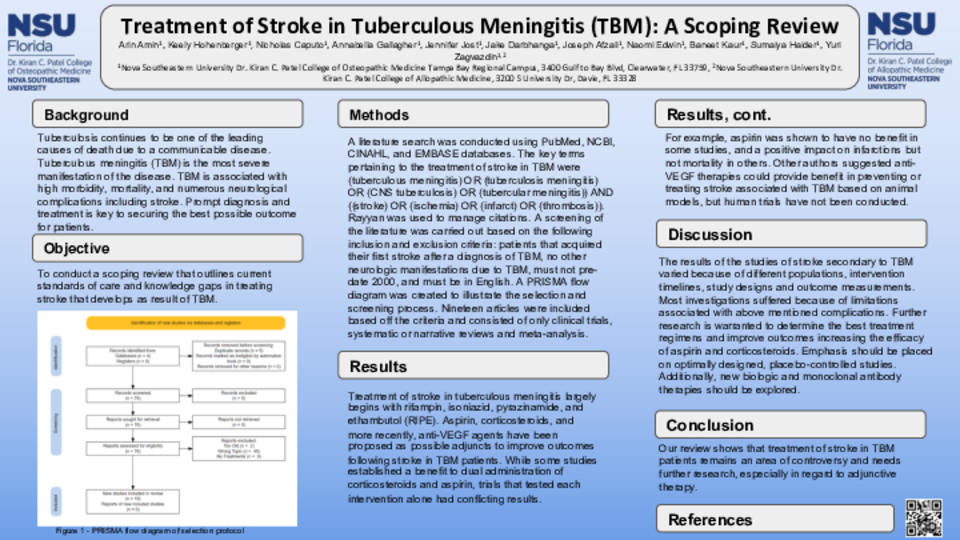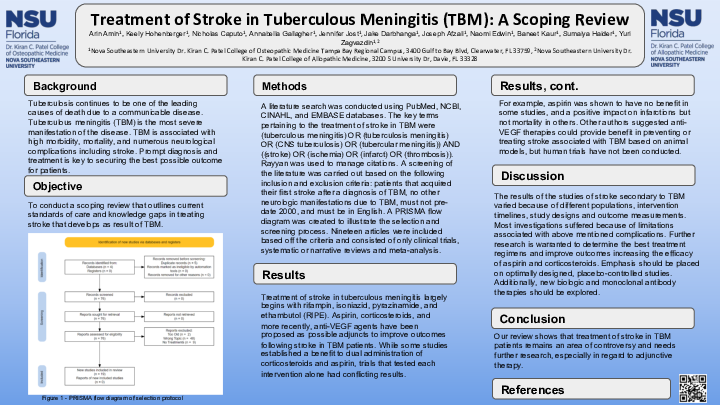Abstract
Background: Tuberculous meningitis (TBM) is a life-threatening infectious disease with high morbidity and mortality. The co-occurrence of stroke is a serious complication of this condition. The management of patients with this very dangerous duplet can be very complex. The choice of optimal treatment regimen has a significant impact on the outcome. However, the literature on this subject is sparse and not always consistent especially regarding the adjunctive therapy.
Objective: To evaluate the treatments used for stroke secondary to TBM and identify where research is lacking.
Methods: Four databases (Medline, PubMed, EMBASE, and CINHAL) were used to search for literature regarding TBM and stroke. Article selection for our analysis included all article types about the adult and pediatric patients whose first stroke happened after acquiring TBM. Articles published before 2000, not in English and involving additional neurological sequelae of the infection served as exclusion criteria. Key search terms were those related to “tuberculous meningitis” and “stroke”. We applied Rayyan software for the analysis of collected articles, which involved 10-group member voting on the matter of inclusion to the final list that consisted of 19 articles.
Results: The basis of TBM treatment is the standard anti-tubercular therapy of rifampin, isoniazid, pyrazinamide, and ethambutol (RIPE). It has been shown in several reports that corticosteroids combined with standard anti-tubercular therapy provide a statistically significant decrease in stroke occurrence. Studies investigating the effect of aspirin as an adjunct to RIPE were inconsistent; some found a statistically significant infarct reduction, while others did not. There is still controversy about the pathogenesis of stroke in TBM including the role of thrombosis. Nevertheless, the results of several publications suggest that combining both a corticosteroid and aspirin provide a better chance for stroke prevention than either drug used alone.
Conclusion: Pathogenesis of stroke in TBM remains controversial and warrants further research. Glucocorticoids appear to be promising in preventing stroke, especially when combined with aspirin. However, the treatment of aspirin alone yields conflicting results. Large-scale studies with strict control of variables are needed to address the uncertainty regarding optimal therapy for this condition.





